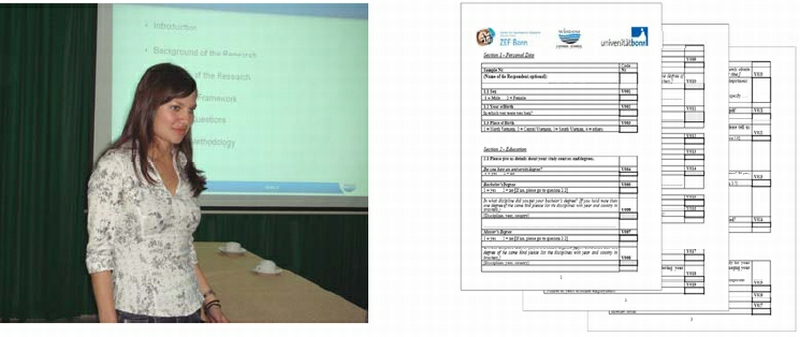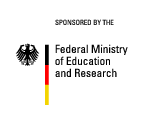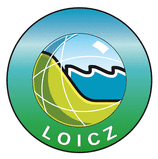First Results of the Knowledge Asset Survey
The survey was carried out with the objective of measuring the knowledge asset of water-related organizations in terms of their individual competences. What educational background and professional experiences do people have who work for research institutes, universities and local authorities in Ho Chi Minh City and the Mekong Delta?
The survey was carried out with the objective of measuring the knowledge asset of water-related organizations in terms of their individual competences. What educational background and professional experiences do people have who work for research institutes, universities and local authorities in Ho Chi Minh City and the Mekong Delta? Targeting a large group of Vietnamese staff members of these respective organizations gives us a much more precise picture of not only the persons who are behind the organizations but also about ongoing research activities such as projects, publications, participation in workshops and conferences. The results will be contrasted with conducted expert interviews as well as participatory observations made during the field research. In the future it needs to be assessed to what extent favorable conditions for knowledge production and dissemination already do exist and analyzed what the opportunities and barriers for the future development of the Vietnamese research and science community are.

Figure 1 - left: Presentation on Field Research Methods (Source: Tatjana Bauer), right: Questionnaire for Knowledge Asset Survey (Source: Tatjana Bauer).
The questionnaire was designed during the first phase of the field research (June/2008). Together with Vietnamese researchers, the survey was developed and pretested. Workshops were held in order to introduce this rather new research topic in the Vietnamese context and to finalize the survey design and procedure.
In total, 282 questionnaires were answered by Vietnamese staff members from 7 different water-related universities, colleges, research institutes and local authorities.
95% of all respondents have a BA degree, 28% graduated from a MA program, 7% obtained a PhD and 1% holds a professorship. It is remarkable that nearly half of the interviewees with a BA degree are currently involved in a MA program. Besides, more than 30% of the respondents have already studied abroad which is quite a high percentage in respect of the low income situation of Vietnamese researchers. In this regard, it will be interesting to analyze what impact international science cooperation has on the education and research sector in Vietnam.
Another significant point was the information and communication behavior of Vietnamese staff members working for these respective organizations. The survey provides valuable data to prove cultural and social issues that shape their work routine and ways of interaction. A first analysis shows that informal personal meetings and the telephone are by far the most important means of communication in Vietnam. What implications these structures have on research activities has to be elaborated in the further analysis.
Moreover, the questionnaire exposes organizational structures in terms of staff fluctuation. As a first result it is notable that about 60% of all respondents have never worked for another organization before. 25% of the remaining respondents were employed for less than 3 years before entering their current organization. These figures show that lifelong working for the same organization is a common pattern of employment and indicate that working experiences and seniority play a crucial role for the selected organizations.

Figure 2 - left: News and Magazine Room of the General Science Library in Ho Chi Minh City (Source: Tatjana Bauer), right: Knowledge Management Workshop in Ho Chi Minh City (Source: Tatjana Bauer).
A further essential issue to clarify was the question which knowledge and information sources Vietnamese researchers use for their research. In addition, it is of most interest to show what relevance national and international publications have for the production of new knowledge in Vietnam. The survey shows that internet is seen as the most important information source, followed by Vietnamese books and the exchange with colleagues at their institute.
In the upcoming months the analysis of expert interviews, participatory observations as well as more elaborated results of the survey will allow a better understanding of these phenomena. Explanations and implications for the future development of different research disciplines and the whole Vietnamese science and research sector will be discussed in the forthcoming dissertation.




